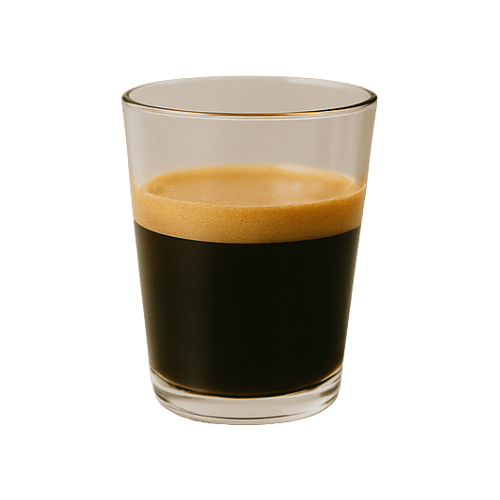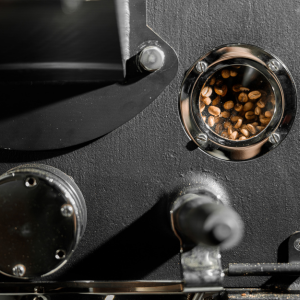the bean breakdown
Medium roast
Brazil, Colombia

Medium
Colombian Single Origin Coffee
Overall Notes
This Colombian single origin delivers a characterful cup with robust presence and satisfying weight. The profile balances intensity with approachability—bold without overwhelming the palate. Expect a well-rounded brew that showcases the distinctive terroir of high-altitude Cauca cultivation.
Key Details:
- SCA Score: 84.25
- Varieties: Caturra & Typica
- Processing: Washed
- Altitude: 1,300–1,650 metres
- 100% Arabica
Origin Story
CENCOIC operates as a co-operative representing indigenous communities across the Cauca region. The political stability that has emerged in recent years has transformed opportunities for these farming communities.
The coffee grows interspersed with traditional crops including panela (unrefined cane sugar), plantains, pineapples, yucca, and citrus. This polyculture approach enriches the soil and creates a unique microclimate—the surrounding crops subtly influence the coffee's flavour development, contributing to its distinctive sweetness and citrus notes.
Colombia's coffee-growing regions span from Amazonian lowlands to Andean peaks. The country once led global production of washed coffees, with three principal growing zones divided by the Andes mountain ranges. This geography creates two main harvest periods, ensuring year-round availability of fresh coffee, though specific varieties and farming communities vary seasonally.
The genetic story of Colombian coffee reflects evolving agricultural priorities. Typica, the original variety, gave way during the 1970s to Caturra—a more productive, compact plant suited to denser planting. The Colombia variety arrived in 1982, combining Caturra with Timor hybrid genetics for improved rust resistance. Castillo followed in 2005, further advancing disease resistance, yield, and cup quality.
Processing Method
Harvesting begins when cherries reach peak ripeness. The initial stage involves flotation sorting to eliminate underripe fruit, twigs, and other unwanted material. The cherries then pass through pulping machinery before travelling down washing channels towards fermentation tanks.
Fermentation typically lasts 8–14 hours, allowing enzymes to break down remaining mucilage. Following fermentation, the beans move to drying patios or guardiolas (mechanical dryers) for controlled moisture reduction to 10–12%.
Most Colombian farmers complete this processing on-site before transporting the dried parchment coffee to dry mills. There, specialists grade, cup, and blend the lots. The coffee remains in its protective parchment layer during storage, only being hulled immediately before export. This particular lot consists of bean sizes 15–16, classified under Colombia's Excelso grade.
Tasting Experience
The cup opens with assertive dark chocolate notes—rich and cocoa-forward without bitterness. Bright lemon acidity cuts through, providing lift and complexity. The mouthfeel shows genuine substance and weight, coating the palate satisfyingly.
That interplay between deep chocolate tones and zesty citrus creates a dynamic drinking experience. The body supports rather than dominates, allowing the flavours to shine whilst providing structure. It's coffee with personality—forthright and flavourful, yet refined enough for daily appreciation.
Our coffees are roasted daily and shipped to you at peak flavour. We aim to deliver all our coffees within 2-7 days of roasting so you get the best flavour for as long as possible.
The most important factor affecting caffeine content is the weight of coffee used, not the brewing method. Here's how it works:
- More coffee = More caffeine: Using 30g (6.5 tablespoons) instead of 22g (5 tablespoons) increases caffeine by approximately 36%
- Brewing method matters less: The extraction efficiency varies only slightly between methods
- Personal control: You can easily adjust caffeine levels by changing the coffee dose
Quick Caffeine Reference:
- Light caffeine (under 50mg): Single espresso from any coffee, or any decaf brew
- Moderate caffeine (50-150mg): Double espresso, standard V60, half caf options
- Higher caffeine (150mg+): French press with full dose, or increasing coffee weight in any method
Grind Size Guide:
- Fine (like table salt): For espresso machines - allows proper extraction under pressure
- Medium (like caster sugar): For pour over methods like V60 - balanced extraction
- Coarse (like sea salt): For French press - prevents over-extraction during long steeping
- For stronger caffeine: Increase coffee dose rather than over-extracting
- For milder caffeine: Choose half caf or decaf, or reduce coffee weight
- Consistent dosing: Use scales for repeatable caffeine levels, but tablespoons work in a pinch
- Time awareness: Remember our recommendation to switch to half caf or decaf from 3pm for better sleep
- Grind fresh: Always grind just before brewing for the best flavour and caffeine extraction
All caffeine levels are lab-tested estimates based on 4.5g per tablespoon. Individual sensitivity varies, and we recommend staying within 300-400mg daily depending on your weight and tolerance.
What we do differently
Why caffeine control matters
-

Healthy Habits
Caffeine clarity helps you stay within recommended daily limits (400mg for most adults), protecting against anxiety, jitters, and cardiovascular stress.
-

Sip Smart and Sleep Smart
Understanding your caffeine intake helps you taper your caffeine consumption which can disrupt sleep cycles, leading to better rest and recovery.
-

Avoid the Energy rollercoaster
Knowing caffeine amounts lets you maintain consistent energy throughout the day without the crash-and-burn cycle of overconsumption.









